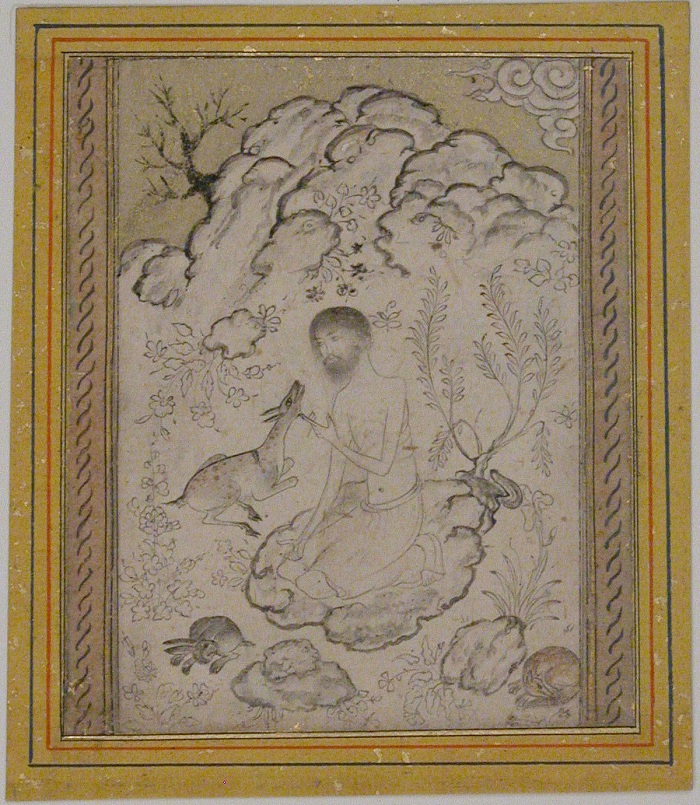FWP:
SETS == EXCLAMATION; IZAFAT
The lover seems to lament, though with entire resignation, his failure to 'die with his boots on' in the heat of the wild conflicts of passion. Instead, he's been left among the wounded, slowly bleeding to death from inner sorrows and sheer exhaustion. Ill-natured, hostile, strife-seeking Passion has been left to stomp around the field unchallenged, searching for a worthy foe, and not deigning to put a wounded sufferer out of his misery. Compare {7,1}, in which Passion is nabard-peshah , a 'professional in battle'.
But what exactly is the nature of the exclamatory word ;hasrat (see the definition above) with which the verse begins? Does this mean that the lover can't participate actively in the sufferings of passion any more, and is forced to make do only with 'sorrow, longing' instead? Does it mean that the loss of bodily strength evokes a specific 'longing' for its return? Does it mean that the lover is now actively seeking out occasions for 'sorrow, longing', so that he can hasten his own ruin and death? The ambiguity of kih , which can introduce a clause of varying relationship to the one before it, is convenient here.
Then of course the semi-personified 'Relish of ruin' [;zauq-e ;xaraabii] who is being addressed could be, thanks to the multivalent pleasures of the i.zaafat , (1) a relish created by ruin (once the lover is ruined, he finds that the condition has its own delights); (2) a relish for ruin (one that seeks out and cultivates ruin); (3) a relish that is itself a form of ruin; or (4) a relish connected in some other, unspecified way to ruin. Ghalib is of course very fond of such wildly abstract personifications.
Also notable is the highly unusual word gau;N (see the definition above). As Bekhud Mohani reports, it has been criticized as a 'Hindi' [hindii] word, and 'unpleasing' (probably because of its rustic sound). He himself considers that in using it Ghalib has created a deliberate effect, has 'set a diamond'. The word gau;N appears only once more in the divan, in {152,3}; discussing that verse, Nazm praises the word for its 'freshness'. So it certainly deserves 'fresh word' credit.

Nazm:
'That' is a gesture toward the struggles of an earlier time, when there was strength in him such that in the capacity of a champion, he grappled again and again with passion. But at length he was defeated, and strength for the encounter did not remain. And over this very thing he expresses longing. (105)
== Nazm page 105